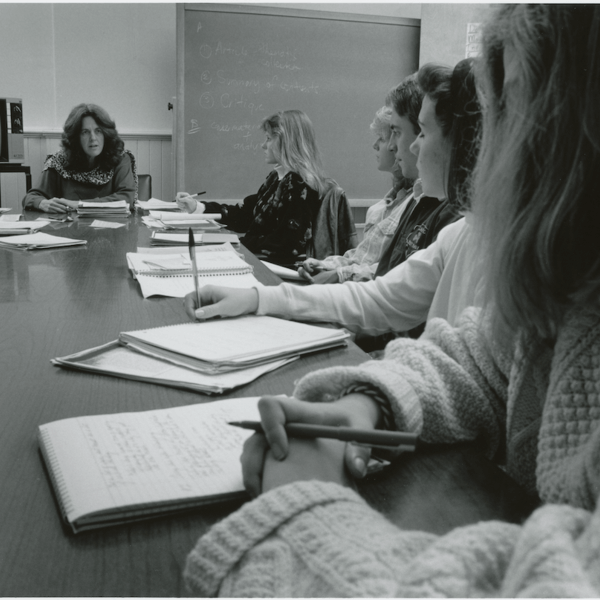When she arrived at Holy Cross in 1989, Jennifer Moore Kickham ’93 described herself as a naïve young woman who lacked self-confidence and was unsure of her future.
Now an OB/GYN at Massachusetts General Hospital, Dr. Kickham credits her experience in the then-newly created Holy Cross Women’s Studies concentration that began her transformation into a mature, thoughtful and confident woman.
"I take what I learned at Holy Cross in the Women’s Studies program and apply them today," Kickham said.
Amplifying Women's Perspectives
Thirty years ago, Kickham and seven other women were the first cohort of students to graduate with the concentration that focused on sharing and amplifying women’s perspectives and scholarship in the classrooms and throughout the College.
"Women’s Studies opened the door for us to consider important areas that the academy had neglected and to hear previously silenced voices. Student and faculty scholarship of an original kind blossomed within the classroom," said Helen Whall, professor emerita of English, who joined the faculty in 1976. "It helped faculty expand our roles. It helped our students consider perspectives that otherwise wouldn’t have been introduced."
Edith Wagoner Klimoski ’93 says that being part of the concentration was the first time at the College she encountered a way of thinking to which she could strongly relate.
"It was the right time for the concentration," said Klimoski, who today is the director of Give Way to Freedom, a Vermont-based nonprofit that provides and advocates for care of survivors of human trafficking and increases awareness of the crime. "Holy Cross provided the space to have those necessary discussions and that evolution of thought. If it had been suppressed, it would have been a disservice to the community and the process that I think the College strives to have and encourage."
The concentration was years in the making and the result of several women faculty who were persistent in the pursuit of what they said were necessary programmatic and curricular changes that included feminist perspectives.
"Feminist scholarship is very much about asking different kinds of questions. Who’s speaking? Who has power? Who’s left out? You’re always interrogating," said Shawn Maurer, professor of English and former Gender and Women’s Studies director.


